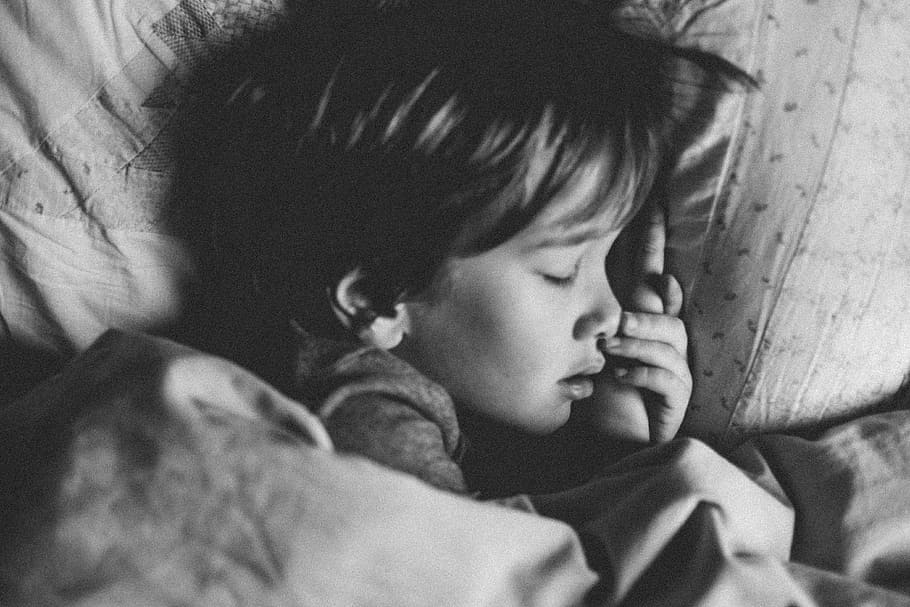
More than 60 million Americans struggle with poor sleep quality or don’t have access to better sleep. Instead of getting rest, they often fret about their inability to sleep, leading to heightened stress and decreased productivity at work. Waking up feeling sleep-deprived, especially when facing significant responsibilities such as important business meetings or caring for children at home, is a dreadful experience. No one wants to start their day feeling already exhausted and defeated.
Here are 6 Powerful tips to a better sleep:
1) Room temperature: Keeping the temperature in your bedroom at 70 degrees Fahrenheit or below is recommended. An overheated bedroom makes you feel more worn-out and restless. Heat as they say is the enemy of sleep. Even your circadian rhythm tells you that you need to cool down before sleep. It automatically lowers your core body temperature by as much as 2 degrees during the night. 2 hours before you go to bed is when this cooling process starts. That’s when you start to feel more relaxed and likely to feel sleepy. So if your room temperature is higher than what your body is expecting, then you’re going against the supposed to be peaceful sleep rhythm. Go with the flow. Listen to your body. Open the windows and let the cool air in if possible which will leads to a better sleep than usual.
2) Reduce caffeine. Yes. Coffee is life to most of us. The aroma of freshly brewed coffee and the bitter-sweet taste that lingers even after your first cup, that boost and the feel-good energy it brings. How can you just give it up? Well maybe you don’t have to. Just don’t drink coffee at night. Unless you work on a night shift. A recent study showed that caffeine is not metabolized efficiently at night. The effects of caffeine last much longer than most people expect. The result is difficulty falling asleep. Studies have shown better sleep patterns if no more caffeine is consumed after 6.00 PM.
3) Avoid alcohol. Alcohol keeps the body from reaching the deeper stages of sleep, where the body does most of its healing and resting. Yes. You read that right. Sleep restores our health. So if we can all just prioritize sleep and give up some of our old habits, we can all have a better sleep and better sleep can drastically improve our health in a great way. The result of drinking can be a very light sleep or difficulty falling asleep in general. Alcohol also has a negative effect on Rapid Eye Movement (REM) sleep. “REM sleep is the deepest sleep, where you have your most vivid dreams,” says Dr. Iatridis. “It’s probably the most restorative sleep. And alcohol can reduce the amount of REM sleep you have at night.” Drinking alcohol before bed can also exacerbate sleep apnea, a common disorder where the airway collapses or becomes blocked during sleep.
4) Have a Routine. Go to bed at around the same time every day. Don’t change your bedtime back and forth. Having a certain schedule developed it will be easier to fall asleep pretty much at the same time every day. A recurring schedule will help your body to get into a better sleep pattern and make it easier to fall asleep.
5) Turn off all electronics. If you are used to watching TV in bed or even working while in bed, you may find it much harder to relax and to fall asleep. Remove the TV and do not work in bed. Sleep requires your brain to slowly shut down and any distraction will cause sleeping problems. Turn off all of your gadgets. This means you are conditioning your mind that it’s time to relax and set aside all things related to your social media. Oftentimes, even after putting our phones down, we still fancy and think about the photos in our Instagram, the comments in twitter, the podcast we listened to and the items in our Amazon cart. We need to switch our minds off these things as well. Keep your phone away from your reach to avoid being tempted to turn it on and scroll the moment you remember something that you missed out.
6.) Take a warm bath. Research suggests that a warm bath or shower an hour or two before bedtime can help you relax and fall asleep faster. Why? It will help lower your body temperature, and that’s a circadian sleep signal. Based on scientific studies, a bath or shower of about 104 degrees Fahrenheit before bedtime that lasted for as little as 10 – 15 minutes significantly improved sleep quality, and increased the overall amount of time slept. In at least a couple of studies, taking a bath one or two hours before bedtime decreased the average amount of time it took the study participants to fall asleep — by about nine minutes.